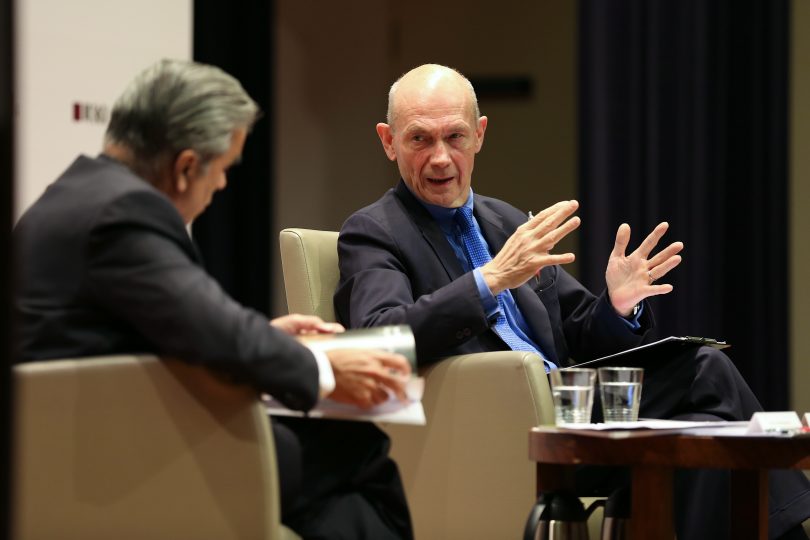
Today marks the anniversary of the publication of Now for the Long Term, the report of the Oxford Martin Commission for Future Generations. The report addresses short-term thinking in politics and business, and proposes a series of recommendations aimed at breaking the gridlock on key global challenges. It provides policymakers, business leaders and the general public with an overview of the most critical global issues of today and tomorrow, as well as an ‘agenda for the long term’.
Launched this time last year, the report has been accessed online well over one million times, has been showcased at 34 events across the globe and has been presented to and endorsed by a range of world leaders.
Professor Ian Goldin, Director of the Oxford Martin School and Vice-Chair of the Oxford Martin Commission, comments: The Commission report has been tremendously well received since its launch a year ago. It has been discussed at dozens of events in five continents, and the Commission’s dedicated Chair Pascal Lamy has discussed the report with a wide range of global political and business leaders. The focus of the Oxford Martin School is now on moving forward the report’s recommendations, working with Commissioners, Oxford Martin School academics and external partners.
The four recommendations are:
Worldstat: establish a global advocacy organization to improve the reliability and availability of statistics
Trustworthy statistics are a vital underpinning for public policy, both as benchmarks and measures of progress. However, data collection and analysis is still inconsistent and varies hugely.
Eminent statisticians as well as senior representatives of international organisations, foundations, and the media gathered at the Oxford Martin School in May 2014 to discuss how to progress Worldstat. Participants agreed the need for a global advocacy organisation/watchdog for trustworthy, accessible, and useful statistics. A working group of experts is now collaborating to produce a proposal to be directed at foundations and international organisations.
C20-C30-C40: create a ‘Coalition of the Working’ comprising countries, companies and cities to counteract climate change
Tackling climate change requires bridging the gap between knowledge and action. Too often international negotiations fail and so an effort needs to be made to work with organisations that can take action and make an impact outside and beyond inter-governmental negotiations.
The Oxford Martin School convened leading figures from a range of countries and organisations in July 2014 to discuss the creation of a C20-C30-C40 coalition. The C40 Cities Climate Leadership and World Business Council for Sustainable Development strongly support the concept, and are discussing a scoping exercise to prioritise its potential activities. The Oxford Martin School is now approaching national representatives to discuss potential country members of a coalition.
Index on the Long Term: create an index to track the effectiveness of countries, companies and international institutions on longer term issues
Just as important as reliable data, is the need for countries to be governed with the long term in mind.
After a meeting with the Secretary-General of the Organisation for Economic Co-operation and Development (OECD), the Oxford Martin School and the OECD are exploring the possibility of an index assessing countries’ commitment to governing with the long term in mind. The Oxford Martin School and the OECD are now working together to determine such an index’s appropriate scope and methodology.
Fit Cities: establish a city-based network to fight the rise of non-communicable diseases.
The rise of non-communicable diseases is putting an unsustainable burden on health and social services in many economies. Short term priorities often obscure the need for solutions that will reduce deaths and costs in the long term.
A ‘Fit Cities’ network could bring together food, drink and alcohol providers, with public health and city authorities, to reduce the burden on health systems.
Led by Commissioner Professor Peter Piot, discussions have been held with the Mayor of London, Boris Johnson, about the possibility of London hosting a meeting of mayors to advance the Fit Cities recommendation. Representatives of the Oxford Martin School and the London School of Hygiene and Tropical Medicine are now meeting senior health officials from the Mayor of London’s office to continue these discussions.
Read more about the Commission’s activities this past year.